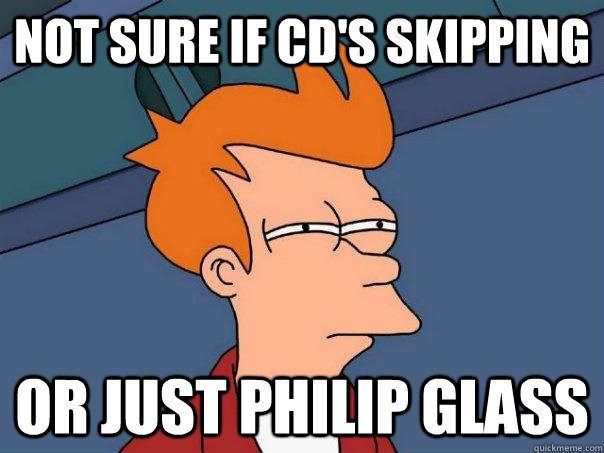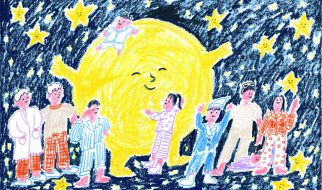It?s that time again! Welcome to Mozart For Muggles, the series that explains classical music for people who just don?t ?get? it. We keep things simple here. No jargon, no technical terms, and very little theory. Just lots of good music!
Over the next few weeks we?re going to look at the evolution of Western classical music throughout history. Well, from the Baroque period to the present day. I don?t know much about music before 1600. But if anyone would like to come forward and write up an overview of Renaissance or Medieval music, you?d be a real hero!
Why is music history is so important?
Music, like art, is a reflection of the struggles and ideals of humanity. Music doesn?t just make us feel good, it isn?t just something fun and entertaining, it?s usually packed with significance and meaning.
When we listen to any piece of music, we get an idea of who the composer or musician is. We get a feel for what was important to them and, by extension, what was important to their audience. If a song or piece of music is popular, that means the music (and its message) resonates with the people of the time. This doesn?t just apply to classical music, it applies to popular music today too!
So when we see a sweeping pattern of similar styles of music in a time period, we can make assumptions and generalizations about the people who lived in that period. The thing that?s most fascinating to me is that popular music, art, literature, and philosophy always seem to shift together. We won?t get into the specifics of that in this quick overview, but you can be sure we?ll talk about it in the deeper articles to come!
So let?s get down to business. Really simply put, there are four periods in the history of Western classical music: baroque, classical, romantic, and 20th century.
Baroque
1600?1750
Roughly speaking, the Baroque period lasts from 1600?1750. Some famous composers from this period were Bach, Handel, and Vivaldi.
The word ?baroque? comes from the Portuguese word ?barroco?, which meant ?misshaped pearl?. Music critics from the 1800s thought that baroque music sounded exaggerated and stilted, and that the composers were trying too hard. The abundance of the clangy harpsichord in the music doesn?t help Bach?s case very much. So that?s where the weird name comes from.
During the Renaissance period, there were two popular ways of making music: 1) One melody is played while the accompaniment (the background music) is improvised, and 2) Multiple melodies are played simultaneously. Musicians and composers in the baroque period started to change this. The opera was invented during this time out of a desire to make a soloist and a single melody more prominent.
Baroque music is when ?tonality? became trendy. You?ve heard of scales, right? A scale has 7 notes arranged in a particular order. Tonal music picks a scale, sticks with it, and has one note (the ?tonic?) that is the most important. Tonal music is, really crudely put, music that sounds good. Beethoven, the Beatles, and Bruno Mars all write tonal music. Schoenberg doesn?t. Bartok doesn?t.
If you remember from your history class, Protestantism was on the rise during this time. The Calvinists weren?t into music, but a lot of other Protestants were. Lots of wealthy people became patrons of Bach and other composers. Churches ended up commissioning a lot of music.
There?s a lot more that?s interesting about the baroque period, but we?ll talk about it in a later article!
Pachelbel?s Canon in D is an example of baroque music.
Handel?s Hallelujah Chorus from The Messiah is also a really well known piece of baroque music.
Classical
1750?1820
Time for a resounding thank you to Haydn, Mozart, and Beethoven, the most important classical composers!
We call the classical period of music history ?classical? because of the large influence that Classical Rome and Greece had on the styles of music, art, and literature in general during this period. If you remember from your history classes, the Enlightenment was going on right about now.
Improv became a lot less prominent in the classical period. Every line, every part, every instrument?s voice was delicately written out. Now music wasn?t left so much in the hands of the musician, but the hands of the composer. Music got much more intricate and involved.
Composers also started deliberately writing how loud or soft and how fast or slow they wanted each piece of music played. Music from this period sounds much ?lighter? because chords don?t change as often.
Ensembles got bigger. That is, more people started getting on the stage to play music! Big symphonies started being composed, and complex operas too, and string quartets. And concerts started to be public, social affairs (as opposed to the baroque period ? where concerts were put on either in private or in church).
Mozart?s 40th Symphony is a classic piece from the classical period.
Romantic
1800?1915
Beethoven ushered in a wave of inspiration and innovation in the world of music (and indeed, it really is hard to say if he was truly a classical composer!). The world as a whole was changing too. France and the United States were going through revolutions. Industrialism was taking root in the West. It?s only natural that we see the music shift as a result of all these things going on.
There?s no exhaustive list of fantastic romantic period composers, but some of the biggies include Schubert, Schumann, Mahler, Liszt, Chopin, Dvorak, Debussy, Verdi, Puccini, and Tchaikovsky.
?Romantic? doesn?t necessarily have anything to do with love or romance, but with feeling and emotion. The music that was written during this period was extremely expressive. Composers sought to express everything that humans feel: grief, tragedy, love, desire, peace, all the things that seem to make us human.
Composers started experimenting more with music. They started breaking rules. They changed keys (they used one scale for part of a composition, and then used a different scale for another part). They played with the meter (they ended phrases early and put symbol crashes where you don?t expect them!). They used lots of new instruments like the piccolo and bass clarinet, so ensembles got even bigger than they were a century ago.
Mahler?s Symphony no. 1 ?Titan? is a thrilling example of romantic period music!
Romantic music most often told a story. And this storytelling is one of the things that 20th century music pushed back against.
20th Century
1900?2000
 From quickmeme.com
From quickmeme.com
A lot of composers in the 20th century reacted against the storytelling nature of music from the previous century. The focus shifted in many ways so that music could be ?music for it?s own sake?. Composers experimented with things like atonality and polytonality (not using a single scale to make a piece of music, as had been done since 1600) and dissonance (stuff that sounds noisy and ?bad?). They used machines in compositions, like in Leroy Anderson?s The Typewriter.
The condition of society and reality of the World Wars seriously affected the content of the music during this period. Music became more crass, more disturbing. A lot of composers became obsessed with the unconscious, especially the ugly feelings and manifestations of the Id that seemed suddenly pervasive. Other composers wanted to portray in their music the devastation that occurred in their cities and countries because of the World Wars.
A lot of people hear 20th century classical music and are quick to plug their ears and say, ?What garbage! That?s not real music!? But this is where context becomes unbelievably important. This is where knowing your history matters. This is where it?s most obvious how much music, art, literature, and philosophy all intersect. 20th century classical music is some of my most favorite music especially because of its ugliness.
In all the noise, I hear myself. I hear my neighbor. I hear the past and the future. This music helps paint a full image of what it is to be human. Things aren?t always hunky dory. Life isn?t always beautiful. 20th century classical music takes this realization and runs with it.
Take a look at this recording of Stravinsky?s Firebird Suite to hear what kind of stuff was being written at the beginning of the 20th century. You can compare this to Pachelbel?s Canon in D from the baroque period to really get an idea of how much music changed over the course of 400 years!
So you see, music isn?t just the hymns played in church or the songs from that rave Saturday night or even a Mozart symphony. It?s collective and reflective of who we are as humans.
If you?re still not convinced that music history is both fascinating and important, bear with us. The evidence is overwhelming the deeper you go. You?ll be convinced by the end of this series on music history.
Additional resources:
- Discover Classical Music Periods with Classic FM
- The Rest is Noise by Alex Ross
As always, please follow and recommend so you and your friends can fulfill your long held dreams of becoming hat-tipping, monocle-adjusting, classical music enthusiasts!


